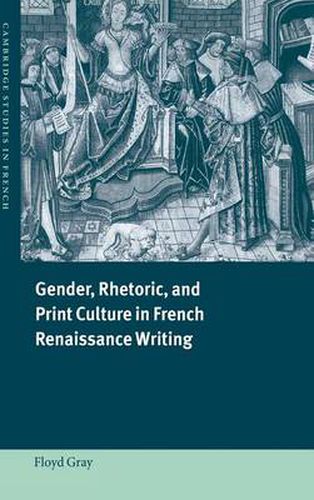Readings Newsletter
Become a Readings Member to make your shopping experience even easier.
Sign in or sign up for free!
You’re not far away from qualifying for FREE standard shipping within Australia
You’ve qualified for FREE standard shipping within Australia
The cart is loading…






In this book Floyd Gray explores how the treatment of controversial subjects in French Renaissance writing was affected both by rhetorical conventions and by the commercial requirements of an expanding publishing industry. Focusing on a wide range of discourses on gender issues - misogynist, feminist, autobiographical, homosexual and medical - Gray reveals the extent to which these marginalised texts reflect literary concerns rather than social reality. He then moves from a close analysis of the rhetorical factor in the Querelle des femmes to consider ways in which writing, as a textual phenomenon, inscribes its own, sometimes ambiguous, meaning. Gray offers richly-detailed readings of writing by Rabelais, Jean Flore, Montaigne, Louise Labe, Pernette du Guillet and Marie de Gournay among others, challenging the inherent anachronism of those forms of criticism that fail to take account of the rhetorical and cultural conditions of the period.
$9.00 standard shipping within Australia
FREE standard shipping within Australia for orders over $100.00
Express & International shipping calculated at checkout
In this book Floyd Gray explores how the treatment of controversial subjects in French Renaissance writing was affected both by rhetorical conventions and by the commercial requirements of an expanding publishing industry. Focusing on a wide range of discourses on gender issues - misogynist, feminist, autobiographical, homosexual and medical - Gray reveals the extent to which these marginalised texts reflect literary concerns rather than social reality. He then moves from a close analysis of the rhetorical factor in the Querelle des femmes to consider ways in which writing, as a textual phenomenon, inscribes its own, sometimes ambiguous, meaning. Gray offers richly-detailed readings of writing by Rabelais, Jean Flore, Montaigne, Louise Labe, Pernette du Guillet and Marie de Gournay among others, challenging the inherent anachronism of those forms of criticism that fail to take account of the rhetorical and cultural conditions of the period.